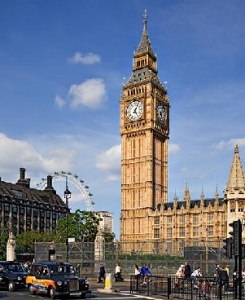Staycation trend boosts UK economy by £12 billion

Despite the dismal weather and tight household budgets, 2013 is going to be a record year for the Staycation trend, as 65% of Britons opt to take their summer holiday at home this year. This is a significant increase on the past two years, when 41% and 35% of Britons respectively took a domestic break. With the average trip costing Britons £399.28 this year, (£34.19 reduction from last year), this investment will boost the UK tourism industry by £12 billion (up £3.3bn from last year). These findings have been revealed today in a new holiday index by Travelodge.
The hotel chain’s fifth annual holiday report surveyed 3,000 British adults to investigate their summer holiday intentions and revealed that 42% of these Staycationers are taking a week’s holiday in the UK this summer, 15% are indulging in a two week break on British shores and a third (33%) are splitting their holidays over three short domestic breaks so that they can visit a series of locations.
Other key findings revealed that the city break has overtaken the traditional seaside holiday as our favourite Staycation break. Listed below are the top five most popular types of Staycation breaks that Britons are taking this year.
City Break (31%)
Rural / Countryside break (27%)
Seaside (22%)
Visiting family (18%)
Visiting an historic site (15%)
The holiday report also revealed that for the first time in five years, Cornwall has lost its crown as the nation’s top Staycation destination and dropped to fourth position. Jumping up the poll to the number one and two positions are capital cities, London and Edinburgh. The Lake District fell from second position to third place this year.
ADVERTISEMENT
Grant Hearn, Travelodge CEO said: “The Staycation trend accelerating to record levels and boosting our economy by £12 billion this year, is a very welcome sign, and hopefully this is the start of our 2012 Olympics legacy gain.
“During 2012, our capital city was showcased in its true glory to all corners of the UK and the world, and it’s a great result that London has been crowned as the top Staycation destination for 2013.”
“However we cannot rest on our laurels, as one of Britain’s biggest business sectors, the opportunity to grow is still great. We are not yet near to unlocking the true potential of our industry. British tourism needs to be treated like a serious business sector and the Government needs to move our industry from the ineffective Department of Culture Media & Sports to the Department for Business, Innovation & Skills. Lack of immediate action is costing jobs, growth and investment.”
The 2013 holiday report has also revealed the following key findings:
· This year due to the dismal weather, 15% of Britons have been waiting for the sun to come out before they booked their Staycation break.
· Just over a fifth of adults (21%) have had to wait until May to book their summer break due to money constraints.
· A third (33%) of respondents stated that it is cheaper to holiday in the UK than abroad plus it is better value for money. The average foreign holiday cost quoted in the report was £1,010.00.
· Over a third of Britons (35%) believe it is important to holiday in the UK in order to preserve our heritage and support British tourism.
· Over a quarter of Britons (27%) stated that a holiday is one of the few things that they refuse to cut back on
· One in ten (11%) of Britons have reported they have not been able to afford a holiday during the economic uncertainty.
· 21% of Britons have created a UK bucket list.
· A third of Britons (33%) research and book their Staycation break online.
The report also revealed a new holiday trend for intergenerational family holidays as this year a third (32%) of Britons will use their Staycation break to bring together more than one generation of their family.

